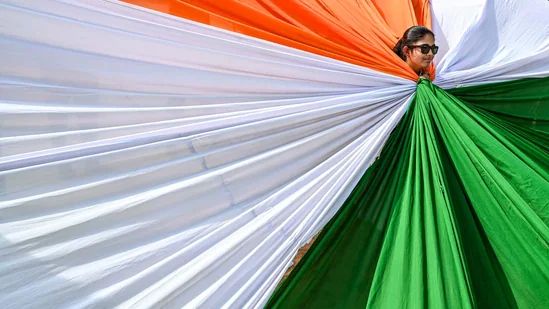History • Subcontinent Focus
Independence Day 2025: India & Pakistan — From Partition to Progress (14–15 August 1947)
Two Midnights, One History. As India and Pakistan mark 78 years of independence, we revisit 1947 and reflect on what the journey means in 2025.



Introduction: Two Midnights, One History
Independence Day 2025 brings renewed reflection for the subcontinent. On August 14 and 15, 1947, Pakistan and India took their first steps as sovereign nations. Seventy-eight years later, the ideals voiced in Karachi and New Delhi still guide conversations about identity, development, and democracy.
This feature connects the defining moments of 1947 with how India and Pakistan observe independence today — a lens for understanding where we began and how far we’ve come.
August 14, 1947 — The Birth of Pakistan
On the night of August 14, 1947, Pakistan emerged as an independent nation with two wings: West Pakistan (present-day Pakistan) and East Pakistan (now Bangladesh). In Karachi’s Constituent Assembly, Lord Louis Mountbatten transferred power, and Muhammad Ali Jinnah assumed office as the first Governor-General.
Jinnah’s inaugural address called for unity, equality, justice, and religious freedom — a moral foundation for the new state.

August 15, 1947 — India’s Independence
The next morning in New Delhi, Jawaharlal Nehru hoisted the tricolour at the Red Fort and delivered the iconic “Tryst with Destiny” speech just after midnight — a pledge to pursue democracy, development, and dignity for all.
The Indian Independence Act of 1947 came into effect, ending British rule and inaugurating a sovereign, democratic republic in the making.

Then & Now: Independence Day 2025 in Context
From the midnight of 1947 to Independence Day 2025, the subcontinent has undergone sweeping change:
- India: A global technology and innovation hub with deep democratic institutions and cultural diversity.
- Pakistan: A resilient society balancing modernization with founding ideals of justice and equality.
Both nations continue to negotiate history and hope — a reminder that independence is not just an event but an ongoing project.
Rare Facts: Did You Know?
- India and Pakistan celebrate on different dates because of the timing of power transfer and time zone differences.
- Nehru’s “Tryst with Destiny” was delivered just after midnight on August 15, symbolizing a new dawn.
- Pakistan’s first national flag was hoisted in Karachi on August 14, 1947.
What’s Next on High Dairies
- Publish a companion feature: “78 Years of Freedom: Culture & Lifestyle Across the Subcontinent,” connecting independence with creative expression and alternative culture.
- SEO targets: freedom lifestyle 2025, subcontinent culture, Independence Day India Pakistan.
- Community push: Invite readers to submit personal family histories from 1947 and how those journeys shaped present-day identity.
- Reels/Shorts: Use the same hooks with chilled lo-fi audio; end screen drives to HighDairies.com.
Explore more on High Dairies:
Cars ·
Rich Mindset ·
Community Stories
FAQs
Why do India and Pakistan celebrate Independence Day on different dates?
Because the transfer of power occurred on different local dates and time zones, Pakistan marks August 14 and India August 15.
What is the significance of Nehru’s “Tryst with Destiny” speech?
It outlined India’s commitment to democracy and social justice at the precise moment of freedom.
What principles did Muhammad Ali Jinnah emphasize in 1947?
Unity, equality, justice, and religious freedom as guiding values for Pakistan.




Social Hooks & Captions
Catchphrases: “Two Midnights, One History” • “1947: The Night That Split the Dawn”
Suggested Hashtags: #IndependenceDay2025 #IndiaPakistanHistory #August1947 #SubcontinentStories #HighDairies
Reel Idea: Archival b/w clips dissolve into 2025 HD celebrations with on-screen line: “From 1947 to today, the tricolour & crescent still rise under the same sky.”